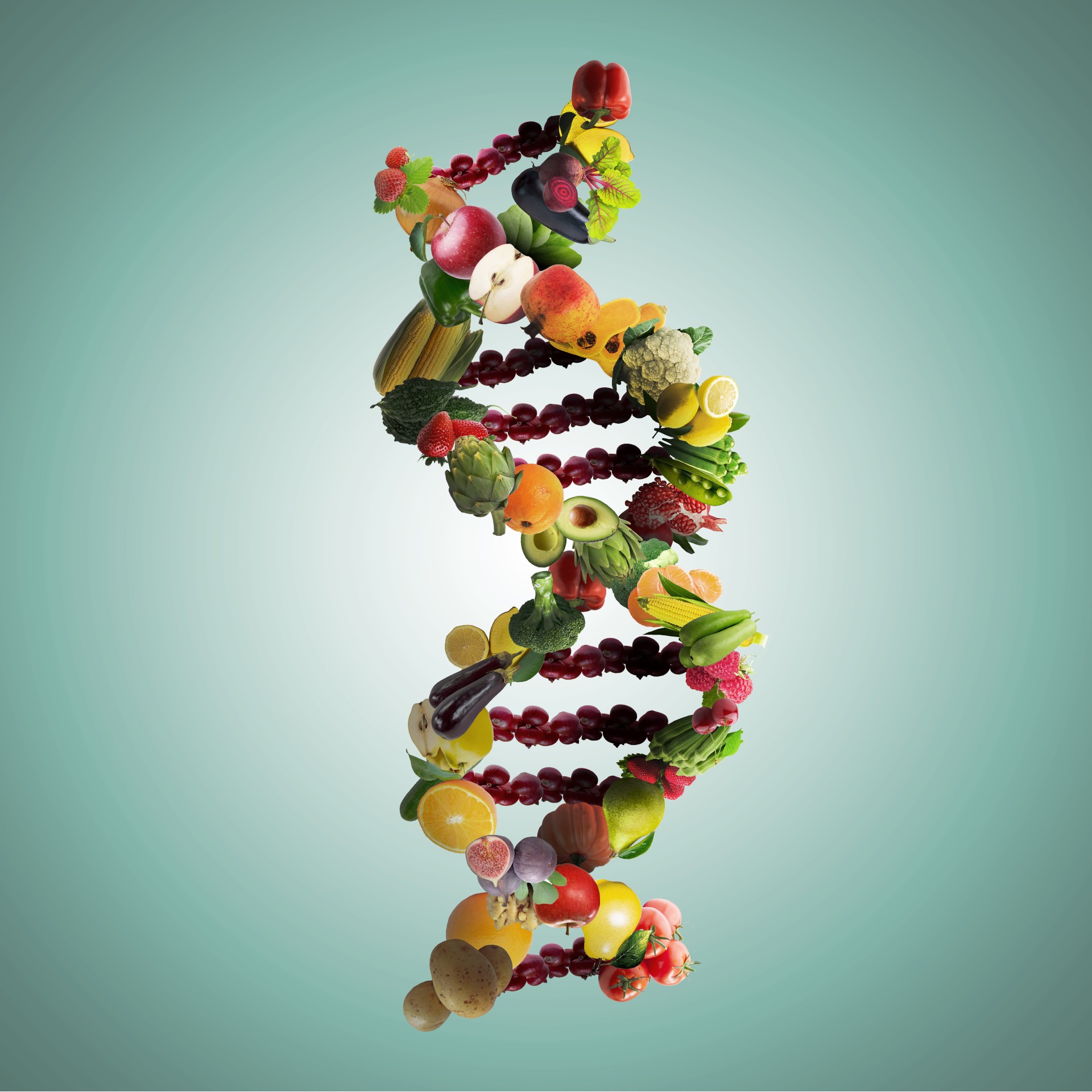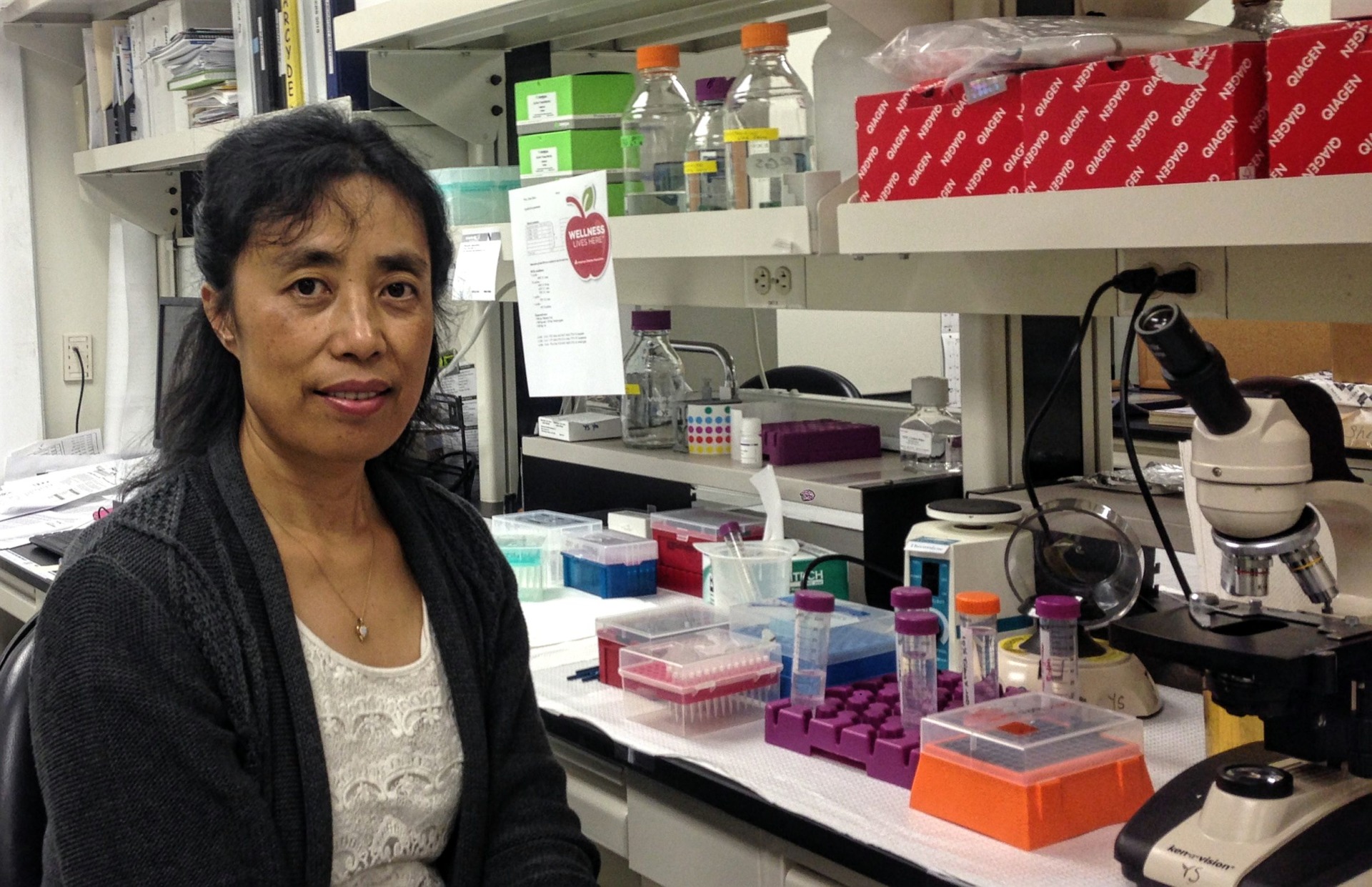Taking nutrition from personalization to precision
Texas A&M AgriLife experts address factors affecting individual response to diet
The theme for this year’s National Nutrition Month is “Personalize Your Plate,” and Texas A&M AgriLife is taking this opportunity to emphasize the importance of individualized diet and precision nutrition to meet specific health needs and goals.
“Diet is an underlying risk factor for many chronic diseases and, as such, can also serve as part of the solution,” said Rebecca Seguin-Fowler, associate director of Texas A&M AgriLife Research and associate professor in the Department of Nutrition at Texas A&M’s College of Agriculture and Life Sciences, Bryan-College Station.
“There are many factors, such as genetics, that may influence an individual’s response to nutrition,” she said.
Seguin-Fowler said while population-based dietary recommendations provide important nutritional guidelines, an individualized approach to nutrition may promote healthier dietary intake and related health outcomes.
Connecting genetics with nutrition
“Dietary advice, whether it comes from the government or elsewhere, is predicated on the assumption there is one general type of diet that is basically effective for everyone,” said David Threadgill, Ph.D., a professor of genetics in Texas A&M’s Department of Biochemistry and Biophysics and interim head of the Department of Nutrition, Bryan-College Station. “But there really is no one diet that’s best for everyone, in large part due to genetic differences in individuals.”
That was the conclusion of Threadgill and other researchers from the Texas A&M University System – along with collaborators from Johns Hopkins University, the University of Tennessee and the University of North Carolina, Chapel Hill – in a study showing how genetic differences can result in different responses to the same type of diet.
The researchers used four groups of animal models with genetic differences similar to those found in humans to see how they would react to four different types of human diets. The diets were the Mediterranean, Japanese, ketogenic or Atkins-type, and a high-fat, high-carb western-style.
The team found not all genetic groups had the same response to the same diet.
“We thought we might determine if one diet was a ‘clear winner’ among all genetic groups,” Threadgill said. “But what we discovered instead was there are genetically defined responses to individual diets that may essentially preclude there being a universally healthy diet for everyone. The study seems to bear out that a personalized or precision dietetics approach to dietary recommendations may yield better health outcomes than a one-size-fits-all approach.”
Threadgill said as genetic testing and nutritional research become even more advanced, it may one day be possible to develop a method of matching a precision diet with an individual’s unique genetic profile and health needs.
“Also, as self-monitoring health technologies improve and nutrition research scientists delve deeper into the cellular-level mechanics of nutrition, people can expect to see more personalized dietary recommendations based on certain individual characteristics,” he said.
AgriLife Research will also be focusing on developing personalized diets that take into account such factors as age, genetics, the microbiome, behaviors, health conditions, lifestyle and other applicable individual characteristics.
Hunger hormone and microbiome
Investigating from another perspective, Yuxiang Sun, Ph.D., AgriLife Research associate professor in the Department of Nutrition and a leading researcher on the “hunger hormone” known as ghrelin, has studied how ghrelin signaling affects obesity, inflammation, insulin resistance, aging and neurodegenerative diseases such as Alzheimer’s disease.
“Inflammation is central to the aging process, a phenomenon described as inflamm-aging,” Sun said. “Basically, obesity is a low-grade chronic inflammation in adipose tissues. There is a clear correlation between adipose inflammation and the instances of insulin resistance and Type 2 diabetes. Inflammation is also considered a hallmark of aging because inflammation is linked to a wide range of chronic diseases in older people.”
She said a personalized diet consisting of foods that help suppress ghrelin signaling and reduce inflammation can positively impact overall body metabolism as well as provide therapeutic benefits for treating obesity, diabetes and some neurodegenerative diseases.
“Nutrition research has demonstrated the important diet-disease relationship as well as other highly relevant outcomes such as weight maintenance, disease resilience and healthy aging,” Sun said.
In a different arena, Robert Chapkin, Ph.D., AgriLife Research Regents Fellow, Department of Nutrition Distinguished Professor and Allen Endowed Chair in Nutrition and Chronic Disease Prevention, has studied how targeted dietary interventions can modulate the gut microbiome to benefit human health and help prevent a broad range of chronic diseases.
“We already have scientific evidence indicating gastrointestinal-derived microbes, or microbiome, may ultimately be the missing link in the modulation of stem cells in the gut and the development of chronic diseases in humans,” Chapkin said. “That means diets that can benefit gut microbiota can also have a positive impact on preventing or treating some types of cancer, such as colon cancer, as well as diabetes, fatty liver disease, obesity, asthma and coronary heart disease.”
Nutrients that bolster the immune system
The COVID-19 pandemic has also made people more aware of the importance of a healthy immune system, said Jenna Anding, Ph.D., professor and Texas A&M AgriLife Extension Service nutrition specialist.
Anding said proteins like those in lean meats, poultry, eggs, seafood, beans, peas and nuts can help support the immune system.
“So does vitamin A, which is found in carrots, broccoli, spinach, sweet potatoes, red bell peppers, apricots, and foods that are fortified with it, such as milk,” Anding said. “Another nutrient that supports immunity is vitamin C, which is found in citrus fruits, red bell peppers, strawberries, bell peppers and tomatoes.”
She also noted vitamin E, which is found in foods like sunflower seeds, almonds, peanut butter, and avocados, works as an antioxidant and can also help support immune function.
“Zinc, which is found in poultry, seafood, lean meats, milk, whole grains, beans, seeds and nuts, also supports the immune system and plays a role in wound healing,” she said. “Other nutrients that benefit the immune system include vitamins B6, B12 and folate. Then there are minerals such as copper, selenium and iron. The bottom line is that it takes a variety of foods to get the nutrients needed to promote a healthy immune system.”
Getting personal with your diet
Seguin-Fowler said a good starting point for personalizing your diet is to consult a registered dietician nutritionist.
“A registered dietician nutritionist can help customize a diet that will best suit an individual’s needs based on any medical considerations, social and cultural context, eating behaviors and preferences, and personal lifestyle,” Seguin-Fowler said. “Having as much of this information as possible improves the ability to effectively personalize a diet to meet an individual’s health needs and desired goals.”
She also notes that keeping track of measures relevant to an individual’s health, such as weight, blood pressure, glucose or hemoglobin A1c, cholesterol levels and other indicators can help individuals see how well they are doing toward their personal health goals.
“Some online tools, electronic devices and apps can help in collecting and tracking health and nutrition information,” she said. “You can also keep and update a daily food and drink diary, maintain a physical activity log to track the amount and type of your daily exercise, and note the quality of your sleep, energy level and how you are feeling overall.”










